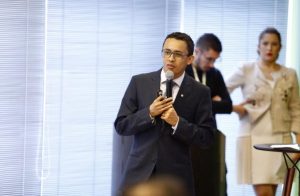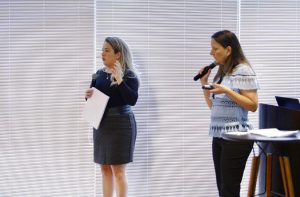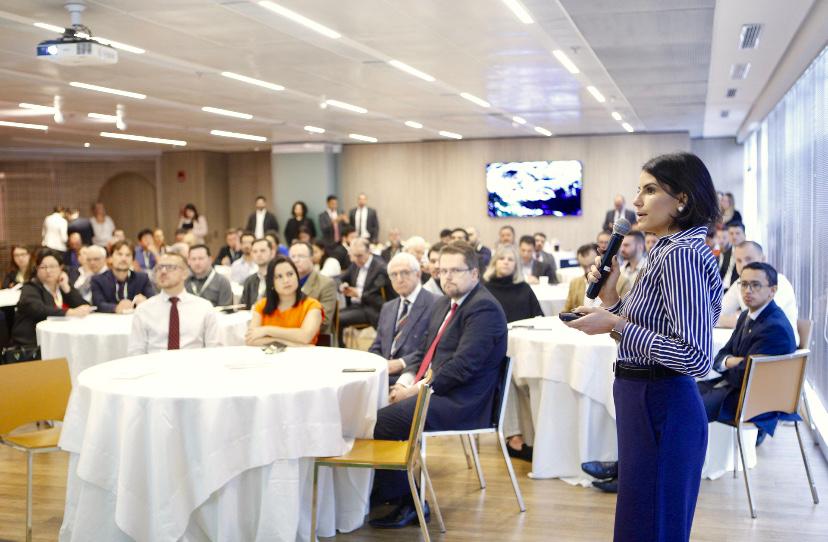São Paulo – The Madrid Protocol was signed by Brazil and will come into force in October, said attorney Mariana Vicentini Taylor (pictured above) during the lecture “Trademark registration as a competitive tool in the Arab world,” held this Tuesday (30) at the Arab Brazilian Chamber of Commerce in São Paulo. The protocol will make trademark registration into a single, streamlined and lower-cost process for 120 countries, including the Arab ones Algeria, Egypt, Morocco, Bahrain, Sudan, Syria, Tunisia, Oman and Mauritania, said Taylor, who is a partner at the law firm Souto Correa Advogados. She says that the agreement coming into force has been the most anticipated news in the trademark registration area for the last year.
Taylor also talked about the importance of protecting a brand in other countries, international registrations, benefits the registration may yield – such as improved trade relations with other countries –, differences between the declarative and attributive system, international treaties, and she gave tips on how to study target countries for anti-piracy protection, review the company’s brands portfolio, and others.

About 70 Arab Brazilian Chamber’s members watched the lecture, including representatives from communication, engineering, food, cosmetic, tourism, trade, coffee and candies companies.
The lecture also featured the Arab Brazilian Chamber certification analyst Laércio Zeferino and quality certification company Intertek general manager Danielle Cordeiro and export coordinator Diva Nascimento. Arab Brazilian Chamber secretary-general gave the closure speech, while the Chamber’s International Relations vice-president ambassador Osmar Chohfi opened the event.
Zeferino talked about the registration and certification processes from Brazil and Mercosur to the Arab countries, with special attention to Egypt due to a few changes in exporting requirements that were made in 2016. He talked about Egypt’s General Organization for Import and Export Control (GOEIC) and the services the Arab Brazilian Chamber offers to facilitate the procedures, such as translation, certification and legalization.
The Intertek executives talked about Egypt’s regulatory aspects, GOEIC, and mentioned a list of prohibited and restricted goods to export to that country. Some of the prohibited goods include bird offal and asbestos, and the restricted ones include scrap metals and artworks. Regulated products to export to Egypt include toys, electronics, vehicles, cosmetics, construction material, textile and leather.

Other fact presented by Danielle Cordeiro was the adaptation of labels. The manager explained that, in Egypt, it isn’t allowed to have pictures of people illustrating the products for a cultural reason. “And that happens with many Brazilian cosmetic labels,” she said. “You also can’t have animal fat into the composition of products such as hair conditioners,” she stressed, because it’s not halal, that is, appropriate for Muslim consumption.
Tamer Mansour ended the lecture saying that the Arabs don’t only look for imports and exports but also long-term partnerships. “We need to establish partnerships to sell technology, strategy, infrastructure,” he said. He disclosed the Arab Brazilian Chamber H2 schedule, including a mission to Syria and Lebanon in August, the food trade show Anuga in Germany, a mission and the Brazilian Day in Saudi Arabia in October, as well as the Food Africa in Cairo, Egypt in December. “We go where the Arabs are, and our commercial team is available to facilitate the processes for our members,” he said.
Translated by Guilherme Miranda




